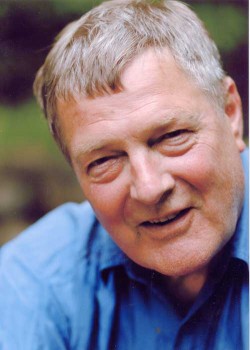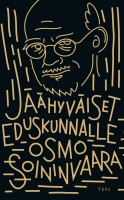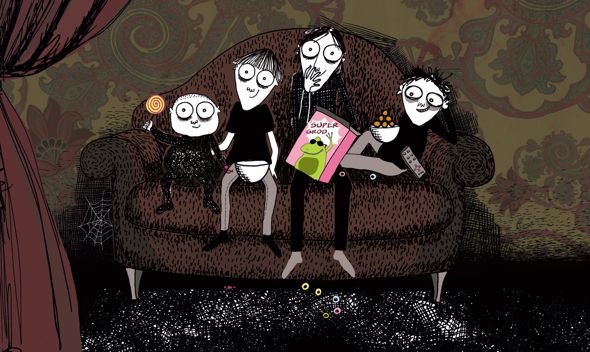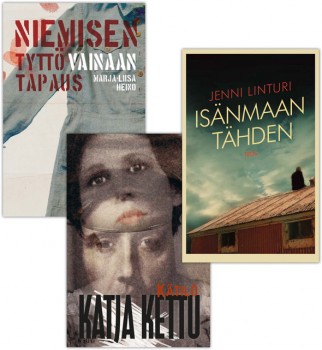Search results for "2010/02/2011/04/2009/10/writing-and-power"
Poems
31 March 1983 | Archives online, Fiction, poetry

Claes Andersson. Photo: Johan Bargum.
Claes Andersson (born 1937) became, during the 1960s, one of the few authors to free themselves from the modernist tradition so firmly established in Finland-Swedish writing in the 1920s to create poetry of a more distinctly personal kind. Claes Andersson’s poems are coloured by his training as a psychiatrist; he uses technical language in which scientific terms are exploited as an expressive device. His work also sometimes contains black humour and an ironical element calculated to shock the reader; they reflect the contrast between the dream of beauty and love and the grim reality of evil . To date, Andersson has published eleven collections of poems and a considerable number of plays for the stage, cabaret and radio. He has also written three novels, the latest of which – entitled En människa som börjar likna sin själ (‘The person who began to resemble his soul’) – is to appear in the autumn of 1983. For an introduction to Claes Andersson’s work, see Thomas Warburton’s article in Books from Finland 3/1979. Claes Andersson’s poems have recently appeared in translation in Poetry East, Seneca Review, Scandinavian Review and Grand Street.
Loneliness
My love, the moments I spend
in your cunt I forget my
migraine aching joints drinking problem grand mal paralysis
hallucinations pain between the shoulderblades short-
ness of breath hiccoughs dandruff dry skin vertigo bedwetting
impaired hearing chafed lips pustules liver
spots leg sores bleeding gums flatulence
sciatica crying fits thoughts of suicide swol-
len ankles pathological thirst Angst baldness double
vision facial twinges difficulty concentrating
cross eyes burning in the urethra running ears ring
ing ears cramps throat pain itching allergies
strange subcutaneous lumps cold hands nail-
biting hoarseness obesity jealousy vomiting
constipation sleeplessness noctural crying fits
failing memory pus in each nasal sinus and gout.
From Rumskamrater (‘Roommates’), 1974)
Osmo Soininvaara: Jäähyväiset eduskunnalle [Farewell to Parliament]
23 June 2015 | Mini reviews, Reviews
 Osmo Soininvaara
Osmo Soininvaara
Jäähyväiset eduskunnalle [Farewell to Parliament]
Helsinki: Teos, 2015. 247pp.
ISBN 978-951-851-649-4
€33, hardback
Long-time member of the Finnish Parliament Osmo Soininvaara, who has also worked as a minister, decided not to participate in the 2015 parliamentary elections. In this timely book, this expert in social politics and influential figure in the Green Alliance examines the reasons for political alienation, analyses politics more broadly and presents his own medicines for improving the situation. According to Soininvaara, the Finnish parliament has become superficial and publicity-seeking and there is much room for improvement in its work. The six-party ‘rainbow coalition’ of the outgoing parliament was incapable of action and the two largest, leftist, parties were continually at loggerheads, with the Social Democrats, in particular, demanding reforms. The divided opposition was toothless. Finland’s economy weakened still further, and it proved impossible to implement the administration’s central projects, reform of the social and health systems and of municipal administration, let alone others, among them the structural administrative changes essential for economic recovery. Writing fluently, Soininvaara examines politics and Parliament from many different perspectives, arguing eloquently for his views.
Transcript renewed
15 October 2009 | In the news
 Transcript, the redoubtable internet review of books and writing from around Europe, has a new editor. Francesca Rhydderch’s background as a former editor of the literary journal New Welsh Review will no doubt bring a fresh perspective on Transcript’s declared aim of promoting good literature written in the smaller European languages. Transcript offers wider circulation to material from small-language literary publications by translating them into English, French and German.
Transcript, the redoubtable internet review of books and writing from around Europe, has a new editor. Francesca Rhydderch’s background as a former editor of the literary journal New Welsh Review will no doubt bring a fresh perspective on Transcript’s declared aim of promoting good literature written in the smaller European languages. Transcript offers wider circulation to material from small-language literary publications by translating them into English, French and German.
Thirty issues of Transcript have been published since its inception in 2002. Now, taking a look at them again, we think they should have been dated – it is rather perplexing not to find any dates attached editorials or introductions to what is very contemporary fiction from an area that is in rapid flux. Perhaps the dates could be added now that new editions are to appear, after a longish break?
Transcript is published by Literature Across Frontiers, a European programme for literary exchange and policy debate, with the support of the Culture 2000 programme of the European Union; it operates in partnership with local literature networks.
The Finnish issue was published in 2004, edited by our very own Soila Lehtonen.
Reading matters? On new books for young readers
9 January 2014 | Articles, Children's books, Non-fiction

The Pixon brothers don’t read books, they love the telly: story by Malin Kivelä, illustrations by Linda Bondestam (Bröderna Pixon och TV:ns hemtrevliga sken, ‘The Pixon brothers and the homely shimmer of the telly’)
Finnish picture books for children have long been reliable export goods around the world. In the last few years, a number of novels for children have come along in their wake: works by authors such as Timo Parvela and Siri Kolu have been translated into a good many languages.
Now young adult literature has also blazed a trail on to the international market – in what also seems to be almost a matter of precision timing with regard to the Frankfurt Book Fair 2014. Finnish publishers have been investing in their home-grown lists of children’s and young adult books ever since the turn of the millennium, and now the time has come to harvest the fruits of their long-term efforts.
Chronicles of crisis
31 December 1982 | Archives online, Fiction, Prose
Books from Finland presents here an extract from Dyre prins, a novel by the Finland-Swedish writer Christer Kihlman that is to be published in 1983 by Peter Owen of London under the title Sweet Prince, in a translation by Joan Tate.
Christer Kihlman (born 1930) first became known as a poet; but, after publishing two collections of poetry, he turned to novels. He has been branded a merciless scourge of the bourgeoisie. Equally important in his writing, however, are his masterly psychological analyses, his examination of the myriad aspects of the human personality, his sovereign disregard for taboos and his unflagging search for the truth. His books are about crises – the conflict between the generations, between the individual and society, between opposing political ideologies, between homosexual and heterosexual love. As Ingmar Svedberg remarked in an extensive appreciation of Kihlman’s work that appeared in Books from Finland 1-2/1976, ‘In his perceptive moral analyses, his exploration of the depths of human destructiveness and degradation, Kihlman is sometimes reminiscent of Faulkner.’ Since 1970, Kihlman has published three revealing autobiographical works, two of them dealing with his encounter with South America; Dyre prins, first published in 1975, represents a brief interlude of fiction.
The extract printed below is accompanied with a personal appreciation of the novel by its English translator, Joan Tate
Grandfather’s astonishing revelation gave me a new perspective on my life. I had suddenly been given a concrete, genuine foundation for both my hatred and my self-esteem. In a way I took the story of my origins as an extreme confirmation of the rightness of the Communist interpretation of reality, and at the same time it gave me a wonderful, dazzling sensation of being someone, despite everything, of having a place in a meaningful human perspective of time, despite everything, of being a link, however modest, in the historical family tradition. I did not need to found a dynasty; I already belonged to a dynasty, if only a minor branch. One was less important than the other, and even if the two experiences were irreconcilable and contradictory, they existed all the same in the same consciousness, contained within the same consciousness, my consciousness. I, Donald Blad! More…
Arska
30 September 1982 | Archives online, Fiction, Prose
A short story from Kaksin (‘Two together’). Introduction by Pekka Tarkka
A landlady is a landlady, and cannot be expected – particularly if she is a widow and by now a rather battered one – to possess an inexhaustible supply of human kindness. Thus when Irja’s landlady went to the little room behind the kitchen at nine o’clock on a warm September morning, and found her tenant still asleep under a mound of bedclothes, she uttered a groan of exasperation.
“What you do here this hour of day?” she asked, in a despairing tone. “You don’t going to work?”
Irja heaved and clawed at the blankets until at last her head emerged from under them.
“No,” she replied, after the landlady had repeated the question.
“You gone and left your job again?”
“Yep.” More…
Wo/men at war
9 February 2012 | Essays, Non-fiction
 The wars that Finland fought 70 years and a couple of generations ago continue to be a subject of fiction. Last year saw the appearance of three novels set during the years of the Continuation War (1941–44), written by Marja-Liisa Heino, Katja Kettu and Jenni Linturi
The wars that Finland fought 70 years and a couple of generations ago continue to be a subject of fiction. Last year saw the appearance of three novels set during the years of the Continuation War (1941–44), written by Marja-Liisa Heino, Katja Kettu and Jenni Linturi
In reviews of Finnish books published this past autumn, young women writers’ portraits of war were pigeonholed time and again as a ‘category’ of their own. This gendered observation has been a source of annoyance to the writers themselves.
Jenni Linturi, for instance, refused to ruminate on the impact of her sex on her debut novel Isänmaan tähden (‘For the fatherland’, Teos), which describes the war through the Waffen-SS Finnish volunteer units and the men who joined them [1,200 Finnish soldiers were recruited in 1941, and they formed a battalion, Finnische Freiwilligen Battaillon der Waffen-SS].
The work received a well-deserved Finlandia Prize nomination. Tiring of questions from the press about ‘young women and war’, Linturi (born 1979) was moved to speculate that some critics’ praise had been misapplied due to her sex. The situation is an apt reflection of the waves of modern feminism and the reasoning of the so-called third generation of feminists, who reject gender-limited points of view on principle. More…
Des res
Extracts from the novel Juoksuhaudantie (‘The Trench Road’, WSOY, 2002)
Matti Virtanen
I belonged to that small group of men who were the first in this country to dedicate themselves to the home front and to women’s emancipation. I feel I can say this without boasting and without causing any bickering between the sexes.
A home veteran looks after all the housework and understands women. Throughout our marriage I have done everything that our fathers did not. I did the laundry, cooked the food, cleaned the flat, I gave her time to herself and protected the family from society. For hours on end I listened to her work problems, her emotional ups and downs and her hopes for more varied displays of affection. I implemented comprehensive strategies to free her from the cooker. I was always ready with provisions when she got home exhausted after a day at work. More…
What Finland read in February
28 March 2013 | In the news
Artist and painter Hannu Väisänen (born 1951) began writing an autobiographical series of novels in 2004. Born in the northern town of Oulu, he colourfully described his somewhat bleak childhood in a family of five children headed by a widowed soldier father. His fourth novel, Taivaanvartijat (‘The guardians of heaven’, Otava), is number one on the February list of best-selling Finnish fiction titles compiled by the Finnish Booksellers’ Association.
Number two is former number one, the Finlandia Prize -winning novel Is (‘Ice’, in Finnish Jää; also to be published in English, possibly later this year) by Ulla-Lena Lundberg.
The latest comic book by Pertti Jarla about the inhabitants of Fingerpori (‘Fingerborg’, Arktinen Banaani), Fingerpori 6, was number three.
In first and second place on the translated fiction list were Stephen King – (11/22/63) and J.R.R. Tolkien (The Hobbit or There and Back Again).
At the top of the non-fiction list is, for the second time, Kaiken käsikirja (‘Handbook of everything’, Ursa) by astronomer and popular writer Esko Valtaoja. In these hard times Finns seems also to be interested in economics, so number two was Talous ja utopia (‘Economics and utopia’, Docendo) by Sixten Korkman, professor and specialist in international and national economics.
The way to anywhere
30 September 2003 | Archives online, Fiction, poetry
Poems from Parittelun jälkeinen selkeys (‘Post-coital clarity’, WSOY, 2003). Introduction by Matti Saurama
Enlightenment needs no tools
1. And I laughed at everything
and didn’t want to see anything old
there was a fingernail-sized buddha and I walked by it
in the room, trying to find the ceiling,
camping out in life, fag in mouth
the soft letters of the clouds, and a blowing skysign
oh sky
2. I stand on the street corner
illuminated like a phone box.
On the way to anywhere
and always there already. More...

